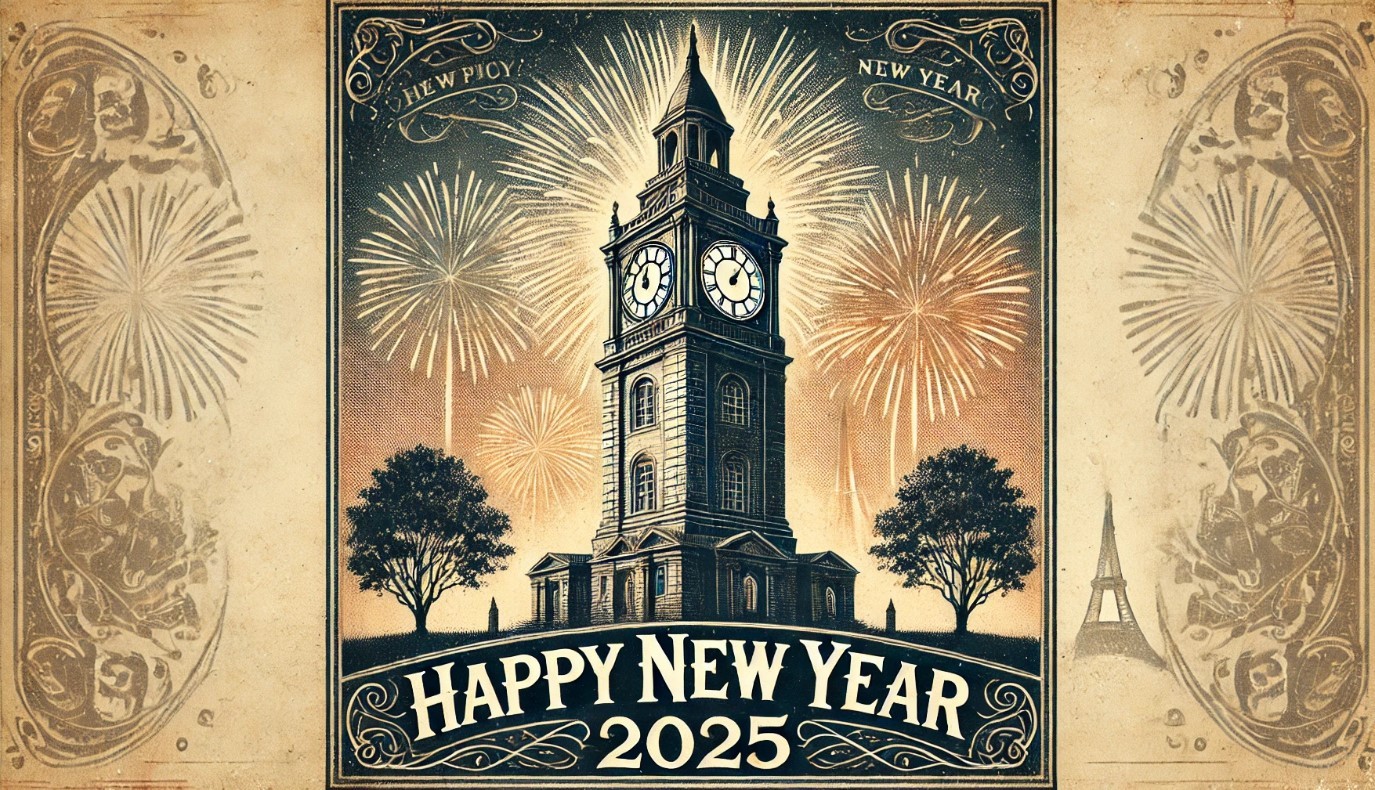Australia Day (January 26): Date, History, Significance, and Celebration
 Religious Holidays in Australia 2025: Date, Significance, and Celebrations Religious Holidays in Australia 2025: Date, Significance, and Celebrations |
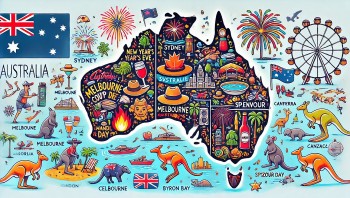 Top 10 Most Popular Holidays and Festivals in Australia 2025 Top 10 Most Popular Holidays and Festivals in Australia 2025 |
January 26th - Australia National Day:
Australia Day is a national holiday observed annually on January 26, marking a significant date in the nation’s history. It is a time for Australians to reflect on their heritage, celebrate their culture, and engage in various commemorative and recreational activities.
However, the date also holds different meanings for different groups, sparking important national conversations.
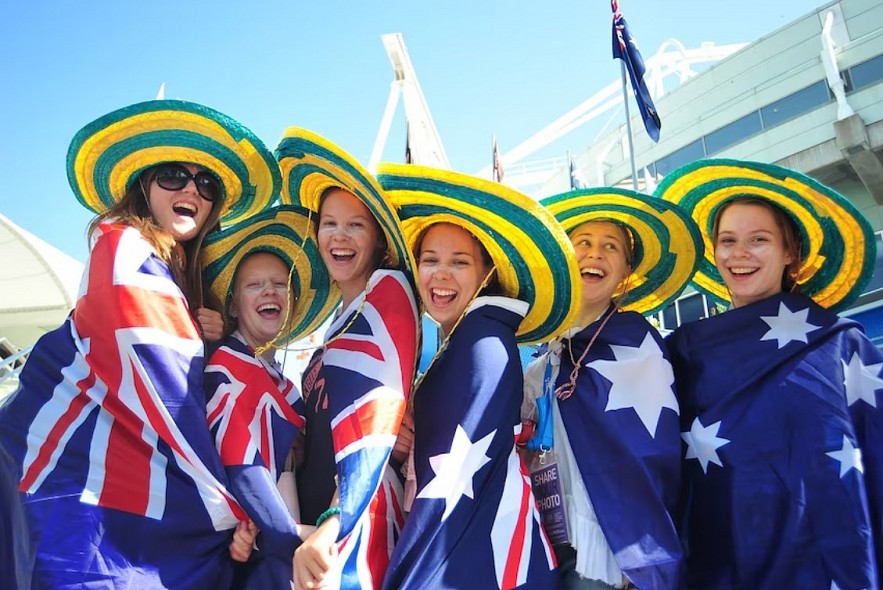 |
| Australia Day is on January 26 every year |
When is Australia Day?
Australia Day is celebrated each year on January 26. If the date falls on a weekend, the public holiday is observed on the following Monday. For instance, in 2025, January 26 falls on a Sunday, so the official public holiday will be observed on Monday, January 27.
As a public holiday, Australia Day provides many Australians with a day off work or an opportunity to earn penalty rates. It is a day for both festive celebrations and critical reflection on the country’s past.
The History of Australia Day
Origins and Early Celebrations
Australia Day commemorates the arrival of the First Fleet at Sydney Cove on January 26, 1788. On this day, Commodore Arthur Phillip officially established the first British colony in Australia. The fleet, initially arriving at Botany Bay between January 18 and 20, found the area unsuitable and moved to Sydney Cove, where they claimed the land for Britain.
The observance of January 26 began in the early 19th century. Early settlers called it "First Landing Day" or "Foundation Day." The first official recognition of the day came in 1818, when Governor Lachlan Macquarie declared it a public holiday in New South Wales. Over time, the tradition spread across the country, and by 1935, all Australian states and territories recognized January 26 as "Australia Day."
Controversy and Resistance
The celebration of January 26 is not without controversy. For Indigenous Australians, the date represents the beginning of colonization and the adverse impacts of British settlement, including the loss of land, culture, and lives. Many refer to the day as Invasion Day or Survival Day, emphasizing the need to acknowledge the struggles and resilience of Aboriginal and Torres Strait Islander peoples.
The first major protest against Australia Day occurred in 1938, marking the 150th anniversary of British settlement. Indigenous leaders declared it a Day of Mourning and called for the recognition of Indigenous rights. Protests have continued throughout the years, particularly during milestones such as the 1988 Bicentenary, where large demonstrations highlighted the impact of colonization on Indigenous communities.
The Significance of Australia Day
Australia Day serves as a platform for celebrating the country’s achievements and diversity. For many, it is an opportunity to reflect on what it means to be Australian, celebrate cultural heritage, and express national pride. Events such as citizenship ceremonies, which welcome new Australians, and the Australian of the Year Awards, which honor outstanding individuals, are central to the day’s significance.
At the same time, the date underscores the need for truth-telling about Australian history. For Indigenous Australians, January 26 is a reminder of the historical injustices endured by their communities. This dual perspective highlights the complexities of national identity and the importance of fostering a more inclusive understanding of Australia’s past and present.
How is Australia Day Celebrated?
Australia Day celebrations vary widely across the country, ranging from public events to personal gatherings.
Some common activities include:
-
Community Events: Parades, festivals, and concerts are held in cities and towns, showcasing Australian culture and history. Major cities often host spectacular fireworks displays.
-
Sports and Outdoor Activities: Australians embrace their love for the outdoors with barbecues, beach outings, and cricket matches.
-
Acknowledgment of Indigenous Culture: Increasingly, events incorporate Welcome to Country ceremonies, Indigenous art exhibitions, and storytelling to honor Aboriginal and Torres Strait Islander culture and history.
-
Citizenship Ceremonies: Thousands of new Australians take the pledge of citizenship on this day, highlighting the nation’s multicultural fabric.
-
Protests and Commemorations: Many Australians, including both Indigenous and non-Indigenous people, participate in Invasion Day rallies to advocate for Indigenous rights and greater historical acknowledgment.
Should the Date Be Changed?
The debate over changing the date of Australia Day continues to gain momentum. Advocates for change argue that January 26 is a painful reminder of colonization for Indigenous Australians and that a new date could unify the nation. Opponents believe the date represents an important milestone in Australia’s history and should be preserved.
Reconciliation Efforts
Efforts to address the contentious nature of January 26 have included increased funding for Indigenous programs, public acknowledgment of historical injustices, and the inclusion of Indigenous perspectives in Australia Day events. These steps aim to create a more inclusive narrative while fostering reconciliation between Indigenous and non-Indigenous Australians.
In Conclusion
Australia Day is a day of mixed emotions, symbolizing both celebration and reflection. For many, it is a time to honor Australian achievements, culture, and identity. For others, it is a day of mourning and a call for justice and reconciliation. As Australia continues to grapple with its history, the ongoing debate surrounding the significance and timing of Australia Day serves as a reminder of the importance of inclusivity, truth-telling, and national unity.
FAQs
1. When is Australia Day celebrated?
Australia Day is celebrated annually on January 26. If the date falls on a weekend, the public holiday is observed on the following Monday.
2. What is the history of Australia Day?
Australia Day marks the arrival of the First Fleet at Sydney Cove in 1788, symbolizing the beginning of British colonization.
3. Why is Australia Day controversial?
For Indigenous Australians, January 26 represents the start of colonization, leading to significant cultural, social, and economic impacts. Many refer to it as Invasion Day or Survival Day.
4. How do Australians celebrate Australia Day?
Celebrations include parades, fireworks, barbecues, citizenship ceremonies, and sporting events, alongside protests and Indigenous cultural events.
5. Is there a movement to change the date of Australia Day?
Yes, there is ongoing debate about changing the date to better reflect inclusivity and respect for Indigenous Australians.
Australia Day continues to be a pivotal moment for celebration, reflection, and dialogue about the nation’s identity and future.
 Australia Calendar in December 2024: Full List of National Holidays, Special Days and International Events Australia Calendar in December 2024: Full List of National Holidays, Special Days and International Events Australia's December is a lively month, with a mix of state holidays, special events, and holiday celebrations that show off the country's rich cultural diversity. ... |
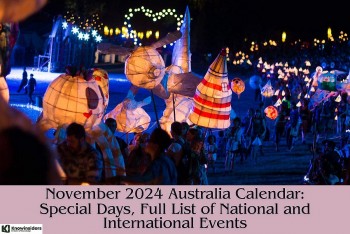 Australia Calendar in November 2024: Full List of National Holidays, Special Days and International Events Australia Calendar in November 2024: Full List of National Holidays, Special Days and International Events Australia is getting ready for a month of important national days, unique observances, and lively celebrations as November 2024 approaches. The events of November 2024 ... |
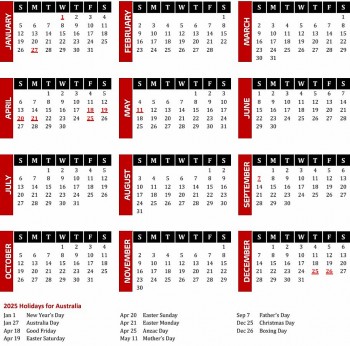 Australia Calendar in 2025 - Full List of Public Holidays, Observances, Dates and Celebrations Australia Calendar in 2025 - Full List of Public Holidays, Observances, Dates and Celebrations Refer to the 2025 Australia Calendar for a comprehensive enumeration of national and regional holidays, festivals, and observances, along with their respective dates and events. |
 Australia Calendar in February 2025: List of Public Holidays, Special Days, and International Events Australia Calendar in February 2025: List of Public Holidays, Special Days, and International Events February 2025 in Australia is packed with cultural celebrations, iconic events, and international observances. From local traditions like Sydney’s Mardi Gras to global awareness days, ... |



